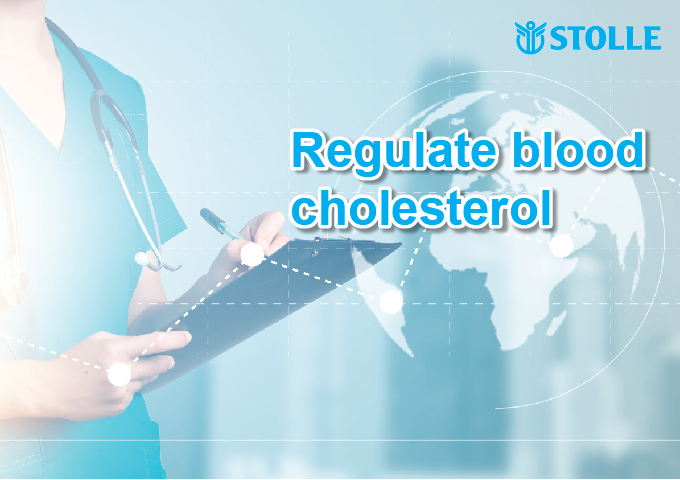For new mothers, postpartum recovery goes beyond physical healing. A strong immune system is the true foundation for full recovery and long-term health — not just for mom, but for her baby as well. During pregnancy, a mother’s immune system naturally shifts into a tolerant state to protect the growing baby. This means certain immune responses are temporarily suppressed to avoid attacking the fetus that is genetically different from the mother. After childbirth, this "immunosuppressed" state begins to reverse. The immune system reactivates, meaning it returns to its normal level of alertness and begins adjusting to the body's new demands, such as tissue repair, lactation, and hormonal shifts. However, this transition doesn’t happen overnight. This reactivation period can be unpredictable and imbalanced, leaving mothers in a vulnerable window where the immune system is not yet fully stable: Fatigue, mood swings, and hormonal changes are common. Risk of infections (e.g., colds, UTIs, mastitis) is higher. Slower healing from childbirth or cesarean wounds. Immune responses may overreact, causing inflammation or delayed recovery. In fact, clinical studies suggest it may take 4 to 6 months for postpartum immune function to stabilize, especially without proper nutrition or rest. How to Support Immunity and Recovery After Birth A strong immune foundation helps mothers feel more energised, resist illness, and recover faster. Here’s how: 1️⃣ Strengthen Nutrition with Stolle ImmNuPlus Stolle ImmNuPlus is specially formulated to support immunity and recovery: · Rich in immunoglobulins and lactoferrin, which actively enhance immune function, helping the body fight off viruses and bacteria. When immunity drops, consuming Stolle Immune Milk daily can assist in replenishing essential nutrients, improving overall resistance 2️⃣ Maintain Good Sleep & Lower Stress Adequate rest and emotional support help balance hormones and immunity. 3️⃣ Gentle Exercises & Sunshine Boosts metabolism, mood, and supports natural Vitamin D production. 💖 Healthy Moms = Happy Babies Your body just created life — and now it deserves powerful, gentle care. Supporting your immune system is not just about avoiding illness; it’s about giving yourself the strength to recover, care, and thrive. This Mother’s Day, give yourself or a loved one the most thoughtful gift: Stolle ImmNuPlus — the science-backed way to support postpartum recovery from the inside out.
more


Stolle Immune Milk Helps with Arthritis Arthritis is a chronic and progressive joint disease commonly seen in middle-aged and elderly individuals, though it can also develop earlier due to sports injuries, immune abnormalities, or long-term inflammation. Arthritis not only causes joint swelling, stiffness, and pain but also severely affects daily activities and overall quality of life. Medical research has demonstrated that chronic inflammation and immune system imbalance are significant contributors to the development of arthritis. Therefore, regulating the immune system and reducing inflammation have become crucial approaches to improving joint health. Special Immune Nutrients in Stolle Immune Milk Stolle Immune Milk, in collaboration with New Zealand’s Fonterra, utilizes a patented “Hyperimmunization” technology—granted in the United States, Japan, Germany, and other countries—which stimulates the natural production of high levels of immune factors in cows. These bioactive nutrients include • Immunoglobulins IgG and IgA: Regulate the immune system and eliminate harmful pathogens. • Anti-inflammatory factors: Reduce chronic inflammation in the body. • Macrophage Activating Factor (MAF): Supports the clearance of damaged cells, metabolic waste, and inflammatory substances. These patented immunonutrients are preserved through low-temperature freeze-drying method, resulting in a uniquely effective immune nutrition milk. ________________________________________ Patented and Certified – Ensuring Quality and Effectiveness A unique nutritional profile makes Stolle Immune Milk offers four major benefits for those dealing with arthritis: 1. Regulates the Immune System o Balances immune responses and reduces autoimmune attacks, such as the synovitis commonly seen in rheumatoid arthritis. 2. Alleviate Chronic Inflammation o Anti-inflammatory agents help reduce inflammatory markers in the joints, easing swelling and pain. 3. Activates Macrophage Cleansing Function o Macrophage Activating Factor promotes the clearance of damaged tissues, inflammatory substances, and cellular debris, accelerating joint repair. 4. Repairs Tissue and Enhances Immunity o High-quality milk proteins and active nutrients support cartilage repair and improve the body’s resilience. Research shows that long-term consumption of Stolle Immune Milk can enhance immune function, lower inflammation markers, and provide protection against various chronic conditions. In studies related to arthritis, clinical data indicate that Stolle Immune Milk can help reduce joint pain scores and improve joint mobility, making it especially suitable for: • Individuals with joint discomfort or chronic inflammation • Patients with rheumatoid or osteoarthritis • Elderly people looking to maintain joint health • Anyone seeking immune balance and improved overall well-being ________________________________________ A Natural Aid in Holistic Arthritis Management Managing arthritis often requires a comprehensive approach, including medication, physical therapy, and dietary adjustments. Stolle Immune Milk offers a natural, non-pharmaceutical solution that contributes to inflammation control, joint pain relief, and joint function recovery. It not only provides essential joint-supporting nutrients but also balances the immune system to reduce inflammation caused by immune system dysfunction. With regular consumption, Stolle Milk can effectively improve joint mobility, relieve pain, and enhance overall quality of life for arthritis sufferers.
more
💡 Cholesterol = A Health Enemy? Think Again! When people hear "cholesterol", they immediately think of heart disease. But did you know? Cholesterol is essential for your body and not an absolute enemy! The key is balancing "good" and "bad" cholesterol, not just blindly lowering it. 📌 Is Lower Cholesterol Always Better? ❌ Extremely low cholesterol levels can also pose health risks! Cholesterol is not just fat in your blood; it is crucial for: ✅ Forming cell membranes and maintaining cell function 🧬 ✅ Producing Vitamin D, bile acids, and hormones (such as testosterone and estrogen) 🌞 ✅ Supporting brain function, with studies suggesting that very low cholesterol may increase the risk of Alzheimer’s disease 🧠 • A study published in The Lancet found that cholesterol levels that are too low (LDL <1.8 mmol/L) may increase the risk of stroke. • Another study indicated that low cholesterol levels are linked to a higher risk of depression and anxiety. 👉 Conclusion: Blindly lowering cholesterol may not be beneficial! The key is to maintain an optimal balance, especially between "good" HDL and "bad" LDL cholesterol. 📌 Does Managing Cholesterol Mean Avoiding Egg Yolks & Seafood? 🥚 Are Egg Yolks Really Bad for You? In the past, people believed that dietary cholesterol from eggs directly increased blood cholesterol, but modern research has debunked this myth! 🔎 According to the American Heart Association (AHA), moderate egg consumption does not significantly increase the risk of cardiovascular disease. In fact, eggs are rich in lecithin and choline, which are beneficial for brain and liver health. 🦐 What About Seafood? Shrimp and crab contain cholesterol, but they are also rich in Omega-3 fatty acids, which can lower bad cholesterol (LDL) and support heart health! 👉 Conclusion: Eggs and seafood are not the "enemies" of cholesterol. The key is your overall diet, not just a single food! 📌 How to Manage Cholesterol the Right Way & Protect Your Heart? ❤️ ✅ Eat a Balanced Diet & Control Saturated Fats • Increase good fats: Fatty fish, olive oil, nuts • Reduce bad fats: Trans fats (found in some processed foods) 🚫 ✅ Include "Heart-Protecting" Nutrients • Plant sterols (found in beans, oats): Help lower LDL cholesterol 🌾 • Curcumin (from turmeric): Anti-inflammatory, protects blood vessels 🟡 ✅ Maintain a Healthy Weight & Exercise Regularly • Aim for 150 minutes of moderate-intensity exercise per week (such as brisk walking, swimming) to boost HDL (good cholesterol)! 🏃♂️ ✅ Choose Scientifically Backed Nutritional Support • Stolle Immune Milk: Contains rich in immunoglobulins and anti-inflammation factor , which actively enhance immune function and may help reduce inflammation and support cardiovascular health! 📢 Conclusion: Managing Cholesterol = Finding Balance, Not Just Lowering It! 🥚 Egg yolks and seafood are not your enemies—moderate consumption can be beneficial! ⚖️ Extremely low cholesterol levels can also be harmful—proper balance is key! 💪 A healthy diet + regular exercise + scientifically backed nutrition = a stronger heart! 📢 #YourTurn! Do you still believe the myth that eggs increase cholesterol? Share your thoughts in the comments below! 👇👇
more
Is Your Immune System "Slacking Off"? Beware of Illness! Our immune system is like a loyal army, always protecting the body from bacteria, viruses, and other pathogens. However, this army doesn’t always work at full capacity—sometimes, it “slacks off,” weakening our defenses and giving diseases a chance to strike. The immune system’s primary job is to recognize and eliminate invading pathogens while clearing abnormal cells in the body to maintain overall health. It relies on white blood cells, antibodies, lymphoid organs (such as lymph nodes and the spleen), and immune signaling molecules to work together. Once a threat is detected, the immune system quickly responds and launches an attack. A healthy immune system effectively fights off colds, flu, and even helps prevent certain cancers. It also has a "memory"—it remembers past pathogens so that when they attack again, the immune system can respond faster. Vaccinations, for example, leverage this memory function to prevent diseases. When Does the Immune System “Slack Off”? Although the immune system is our body’s guardian, it doesn't always stay in peak condition. Certain factors can put it into a low-efficiency mode or even cause it to “slack off,” leading to weakened immunity. These include: 1️⃣ Chronic Stress & Fatigue Prolonged stress or lack of sleep causes excessive cortisol production, which suppresses immune function, making the body more vulnerable to infections. 2️⃣ Poor Nutrition The immune system depends on balanced nutrition to function. A deficiency in protein, vitamin C, vitamin D, or zinc can reduce immune cell activity, making it easier for pathogens to invade. 3️⃣ Sedentary Lifestyle & Lack of Exercise Moderate exercise enhances immune function, but prolonged inactivity can lower white blood cell activity, weakening immune responses and increasing infection risks. 4️⃣ Unhealthy Habits (Smoking & Excessive Alcohol Consumption) Toxins in tobacco damage the respiratory tract’s defenses, allowing pathogens to enter more easily. Excessive alcohol consumption impairs white blood cell function, weakening immunity. 5️⃣ Aging As we age, the immune response slows down, and the number of T cells (which kill pathogens) decreases, making older adults more susceptible to infections. 6️⃣ Long-Term Use of Antibiotics or Immunosuppressants Overuse of antibiotics disrupts gut microbiota balance, while long-term use of immunosuppressants (such as steroids) directly suppresses immune function, increasing infection risk. What Happens When the Immune System is Weak? When the immune system remains in a low-efficiency state for too long, the body may experience: ⚠️ Frequent Infections – Persistent colds, recurring infections, and even severe illnesses like pneumonia or urinary tract infections. ⚠️ Slow Wound Healing – The immune system plays a role in tissue repair, so weakened immunity can slow recovery and increase the risk of infection. ⚠️ Chronic Inflammation – A sluggish immune system may lead to chronic inflammation, increasing the risk of conditions such as arthritis, allergies, and even cancer. ⚠️ Gut Issues – Immunity is closely linked to gut health; a weak immune system can disrupt gut microbiota, causing digestive issues like indigestion and diarrhea. How to Keep Your Immune System Strong? To ensure your immune system functions optimally, follow these steps: ✅ Eat a Nutritious Diet – Consume foods rich in vitamins and antioxidants, such as fruits, vegetables, nuts, high-quality proteins (fish, eggs), and fermented foods (yogurt, kimchi). ✅ Maintain a Regular Sleep Schedule – Aim for at least 7-8 hours of sleep per night, as sleep deprivation weakens immune defenses. ✅ Exercise Regularly – Engage in at least 150 minutes of moderate-intensity exercise per week, such as brisk walking, yoga, or swimming. ✅ Manage Stress – Reduce stress through meditation, reading, or listening to music to prevent chronic anxiety and tension. ✅ Quit Smoking & Limit Alcohol Consumption – Reducing alcohol intake and quitting smoking can help strengthen the immune system. ✅ Drink Stolle Immune Milk – Stolle ImmNuPlus is rich in immunoglobulins and lactoferrin, which actively enhance immune function, helping the body fight off viruses and bacteria. When immunity drops, consuming Stolle Immune Milk daily can assist in replenish essential nutrients, improving overall resistance—especially beneficial for individuals prone to digestive issues or frequent colds. Final Thoughts: Don’t Let Your Immune System “Slack Off”! Your immune system is your body’s first line of defense, but various factors can weaken it, allowing diseases to take hold. By maintaining a nutritious diet, a regular sleep schedule, an active lifestyle, and healthy habits, you can keep your immune system in top shape and ensure it protects your health. 💪✨ Start building better habits today and boost your immunity!
more
Post-Holiday Diet Plan: Regulating Digestion, Boosting Immunity, and Restoring Vitality After the Spring Festival, many people often face issues such as digestive discomfort, fatigue, and low energy. During the holiday, indulging in rich foods, irregular sleep schedules, and excessive alcohol consumption can overload the digestive system, weaken immunity, and lead to symptoms like indigestion, bloating, and constipation. To help the body recover quickly, adjusting your diet after the holiday is crucial. By incorporating ImmNuPlus and Vigor Plus, Stolle help you regulate digestion, enhance immunity, and restore vitality. ________________________________________ Common Digestive Issues After the Holiday 1. Indigestion: Overconsumption of high-fat and high-sugar foods during the holiday can lead to excessive stomach acid, causing bloating and stomach pain. 2. Constipation or Diarrhea: Irregular eating habits and insufficient dietary fiber intake may cause constipation, while consuming raw or unclean foods can lead to diarrhea. 3. Weakened Immunity: Staying up late and imbalanced diets can compromise the immune system, making you more prone to fatigue and illness. ________________________________________ Post-Holiday Dietary Adjustments 1. Opt for Light, Easy-to-Digest Foods Focus on light and easily digestible meals such as porridge, steamed vegetables, and clear soups. Reduce intake of fried and spicy foods to ease the burden on your digestive system. 2. Increase Dietary Fiber Incorporate more fiber-rich foods like oats, sweet potatoes, leafy greens, and fruits to promote bowel movements and alleviate constipation. 3. Supplement with Probiotics Probiotics help restore gut flora balance and improve digestion. Consider drinking yogurt or probiotic beverages. 4. Stay Hydrated Ensure adequate daily water intake to help detoxify the body and boost metabolism. ________________________________________ ImmNuPlus: Boosting Immunity, Protecting Health ImmNuPlus is rich in active ingredients such as immunoglobulins and lactoferrin, which effectively enhance immunity and help the body fend off viruses and bacteria. During the post-holiday period when immunity is often low, drinking daily can quickly replenish nutrients and strengthen your body's defenses, making it especially suitable for those with sensitive digestion or frequent colds. • Recommended Usage: 1-2 bottles daily, preferably during breakfast or before bed for optimal results. ________________________________________ Vigor Plus : Restoring Energy, Revitalizing Spirit Vigor Plus contains a blend of vitamins, minerals, and natural plant extracts that help alleviate fatigue and boost energy levels. When feeling tired and sluggish after the holiday, drinking Vigor Plus can quickly replenish energy and improve mental clarity, helping you return to work and daily life with renewed vigor. • Recommended Usage: Drink in the afternoon or after exercise to restore energy and revitalize your body. Sample Post-Holiday Diet Plan • Breakfast: Oatmeal porridge + boiled egg + ImmNuPlus • Lunch: Steamed fish + stir-fried spinach + sweet potato rice • Afternoon Snack: Vigor Plus + a handful of nuts • Dinner: Vegetable soup + steamed pumpkin + yogurt • Before Bed: ImmNuPlus (to aid nighttime recovery) The post-holiday period is a critical time for body recovery. By incorporating ImmNuPlus and Vigor Plus , you can not only alleviate digestive discomfort but also enhance immunity and restore vitality. Let's start with our diet and lay a healthy foundation for the new year!
more
Rejuvenate your body with detoxification during CNY! How to Protect Your Liver During Chinese New Year Chinese New Year is a time for family reunions and festive celebrations, but amidst the joyous feasting, your liver may silently be under immense pressure. Post-festival health check-ups often reveal abnormal liver functions or increased liver strain in many individuals. These issues are closely related to irregular eating habits and lifestyle during the celebrations. What factors impact liver health during Chinese New Year, and how can we protect it? Major Sources of Liver Stress During Chinese New Year 1. High-Fat, High-Calorie Diet The New Year offers a variety of delicacies like pineapple tarts, dried meat, shrimp crackers, and festive dishes. These foods are often high in fat and sugar, which, when consumed excessively, increase the risk of fat accumulation in the liver, potentially leading to fatty liver disease. 2. Excessive Alcohol Consumption Alcohol consumption spikes during festive gatherings. While drinking can elevate the celebratory atmosphere, it directly damages liver cells. Chronic excessive drinking can lead to alcoholic hepatitis or even liver cirrhosis. 3. Late Nights and Stress Late-night entertainment, such as playing mahjong or attending supper gatherings, deprives the liver of adequate rest. Additionally, the stress of preparing for the festivities and financial burdens may further increase the metabolic strain on the liver. 4. Lack of Exercise Many people become sedentary during the holiday, busy with visiting relatives and attending gatherings. This lack of physical activity slows down metabolism and blood circulation, reducing the liver’s detoxification efficiency. According to a report by Malaysia's Ministry of Health, the number of cases showing abnormal liver function in health check-ups increases by 20%-30% in the one to two months following Chinese New Year. Fatty liver and alcohol-related liver damage are the most common issues, highlighting the significant impact of unhealthy festive habits on liver health. Here are some simple but effective tips to keep your liver healthy during the festivities: 1. Diet: Opt for Lighter, Balanced Meals o Choose Healthy Foods: Limit high-fat and sugary foods, and include more fiber-rich vegetables like broccoli, kale, and carrots. o Practice Portion Control: Even during festive feasts, eat in moderation and avoid overeating. 2. Alcohol: Limit or Avoid o Reduce alcohol intake, especially on an empty stomach. Replace alcoholic beverages with non-alcoholic options like green tea or lemon water. o If drinking is unavoidable, limit intake to no more than two drinks per day for men and one drink for women (approximately 10 grams of alcohol). 3. Maintain Regular Sleep Patterns o Ensure 7-8 hours of sleep per day and avoid staying up late. The liver’s repair process peaks between 1 a.m. and 3 a.m. o If late nights are unavoidable, take short naps during the day to recover. 4. Increase Physical Activity During Festivities o Walk more during visits, such as personally delivering greetings to neighbors rather than sitting in the living room snacking. o Aim for at least 30 minutes of exercise daily, such as brisk walking or yoga, to improve blood circulation. 5. Drink a Cup of Vigor Plus o During the festive period, opt for liver-supporting beverages like Vigor Plus, which contains curcumin, a powerful antioxidant with proven liver-protective properties. o Vigor Plus is made with over 95% curcumin extract, enhanced with piperine and phospholipid technology for better absorption in the gut. Stolle wishes everyone a happy and healthy Lunar New Year! Let’s work together towards balanced immunity and optimal health!
more
CNY Stomach Strike Alert! The Lunar New Year is a season of reunion and a feast of delicious food. However, while indulging in these festive delicacies, our digestive system may unknowingly "go on strike." According to Malaysia's Ministry of Health, gastrointestinal issues related to dietary habits significantly increase during the Chinese New Year, including indigestion, diarrhea, bloating, and even food poisoning. Common Issue 1: Indigestion • Symptoms: Bloating, stomach discomfort, belching, etc. • Cause: The festive season brings an abundance of high-fat, high-sugar, and high-salt foods. Though tasty, traditional dishes like Nian Gao, spring rolls, and nasi lemak can burden the digestive system. • Fact: According to the Malaysia National Health and Morbidity Survey (NHMS), about 40% of people experience indigestion symptoms during the holidays due to overeating. • Prevention Tips: o Control portion sizes and chew food thoroughly. o Opt for steamed or boiled dishes and minimize fried foods. Common Issue 2: Diarrhea • Symptoms: Frequent watery stools, abdominal cramping, etc. • Cause: Frequent gatherings and dining out during the festive season may lead to bacterial infections from improperly stored or undercooked foods. For example, raw fish in Yee Sang or leftovers stored for too long can be breeding grounds for bacteria. • Fact: According to the Ministry of Health, cases of acute gastroenteritis due to food poisoning increase by approximately 20% during Chinese New Year. • Prevention Tips: o Ensure food is fresh and properly stored; leftovers should not be kept for more than two days. o Choose clean and hygienic restaurants when dining out. Common Issue 3: Bloating • Symptoms: Abdominal fullness, frequent belching, increased flatulence. • Cause: Consumption of carbonated drinks and high-fiber fruits (e.g., jackfruit, durian) during the holidays can cause gas accumulation in the intestines. • Prevention Tips: o Choose warm water or tea instead of carbonated drinks. o Consume high-fiber fruits in moderation, limiting intake to two servings per day. Common Issue 4: Constipation • Symptoms: Difficulty in passing stool, hard stools. • Cause: Holiday diets are often high in fat and protein, with insufficient dietary fiber and water intake, compounded by prolonged sitting and lack of exercise. • Fact: About 35% of adults experience constipation during the festive season. • Prevention Tips: o Eat fiber-rich vegetables (e.g., spinach, cabbage) and fruits (e.g., oranges). o Drink plenty of water daily (at least 8 cups). ImmNuPlus: Your Breakfast Ally During the Holidays Start your day with a glass of ImmNuPlus, a product enriched with 26 specific immune and protective factors that regulate immunity and prevent infections and diseases. Extensive research and clinical studies have shown that ImmNuPlus supports gut health, earning a patent for "gut protection" by effectively promoting intestinal balance and preventing gastrointestinal diseases. ImmNuPlus provides comprehensive nutritional and immune support, maintaining gut health, improving digestion, and alleviating inflammation. It also supports immunity regulation, blood lipid balance, and other health benefits. Its effectiveness is supported by clinical research and recognized by 20 countries with health-related patents. It's a product you can trust. For added support, enjoy a cup of Vigor Plus in the afternoon. It helps reduce excessive free radicals in the body and supports liver detoxification, enabling you to embrace the festive season with ease and vitality!
more
Detox: Your first step to a healthy life Our body is an efficient "detoxification factory" that works daily through various organs to eliminate toxins and maintain health and vitality. However, with the increasing presence of pollutants, processed foods, and unhealthy habits in modern life, the risk of toxin accumulation has risen, making it crucial to understand the importance of detoxification and the role of detoxification organs. Detoxification is an essential self-repair process in the body. By eliminating toxins and waste, it helps to: 1. Maintain metabolic balance: Detoxification supports normal cellular metabolism and promotes energy production. 2. Enhance immunity: By removing toxins, the immune system can focus more on combating external pathogens. 3. Improve overall health: Those with effective detoxification typically feel more energetic, have better skin, and lower risks of diseases. When detoxification organs are impaired, or toxin accumulation becomes excessive, the following health problems may arise: • Fatigue and weakness: Toxins interfere with energy metabolism, causing persistent fatigue. • Skin issues: Problems such as acne, dullness, and premature aging are often linked to toxin buildup. • Weakened immunity: Toxins reduce the efficiency of the immune system, making infections more likely. • Increased risk of chronic diseases: Toxin accumulation can lead to inflammation, raising the risks of diabetes, hypertension, and liver or kidney diseases. Key Detoxification Organs 1. Liver: Function: The liver serves as the primary "detox factory," breaking down toxins like drugs and alcohol and excreting them through bile. Importance: Liver health is critical for the body's metabolic efficiency. 2. Kidneys: Function: Filters blood, removing urea, sodium, and excess water. Importance: Kidneys maintain water-salt balance and remove waste through urine. 3. Intestines: Function: Eliminate undigested waste and toxins through feces, preventing toxin reabsorption. Importance: A balanced gut microbiome is vital for healthy detoxification. 4. Skin: Function: Eliminates toxins through sweat glands while regulating body temperature. Importance: As the largest detox organ, skin aids the liver and kidneys in detoxification. 5. Lungs: Function: Expels carbon dioxide and other gaseous waste through breathing. Importance: Healthy lungs are crucial for oxygen supply and metabolic detoxification. How to Ensure Effective Detoxification 1. Healthy diet: Consume fiber-rich foods (vegetables, fruits, whole grains) to support gut detoxification. 2. Regular exercise: Sweating and improved circulation help accelerate toxin elimination. 3. Nutritional supplementation: For example, curcumin can promote liver detoxification, reduce inflammation, and improve gut microbiome balance. 4. Drink plenty of water: This supports kidney filtration and prevents toxin accumulation. 5. Add Vigor Plus in your daily diet: High in antioxidants, it helps enhance liver detoxification functions. Detoxification organs are the guardians of our health. Their proper functioning ensures effective toxin elimination and maintains health and vitality. Let Stolle support your detox journey by starting with daily dietary and lifestyle habits, giving your body the care it deserves!
more
Rejuvenate your body with detoxification Do You Know? When your body feels fatigued, your immune system weakens, or your skin condition deteriorates, it could be a signal of toxin accumulation within. Detoxification is a vital process for the body’s self-repair, helping us maintain health, boost vitality, and build a stronger foundation for immunity. Every day, we encounter various toxins, such as: 1. Additives and heavy metals in food. 2. Toxins from skincare or cosmetic products. 3. Excessive consumption of health supplements. 4. Pollutants from the environment. 5. Issues stemming from lifestyle habits. The body naturally detoxifies through its organs (e.g., liver, kidneys, skin, and intestines) to eliminate toxins and maintain metabolic balance. However, impaired detoxification can lead to: Consequences of Poor Detoxification • Fatigue and Weakness: Toxins interfere with energy metabolism, leaving you feeling drained. • Skin Issues: Problems like dullness, acne, and premature aging. • Weakened Immunity: Toxins hinder immune system efficiency, making you more susceptible to illness. • Increased Risk of Chronic Diseases: Toxin buildup can cause inflammation, increasing the risk of diabetes, hypertension, and liver or kidney disorders. How to Support Daily Detoxification • Adjust Your Diet: Eat more fiber-rich foods (vegetables, fruits, and whole grains) and stay hydrated. • Increase Physical Activity: Exercise promotes circulation and sweating, helping toxins to be expelled. • Consider Detox Support Supplements: Ingredients like curcumin enhance liver function, reduce inflammation, and help eliminate free radicals. Curcumin, the active compound in turmeric, is renowned for its powerful antioxidant and anti-inflammatory properties. It aids detoxification in the following ways: 1. Enhancing Liver Detoxification: Curcumin boosts liver enzyme activity and promotes glutathione production, an essential antioxidant that helps the liver expel toxins and improves detox efficiency. 2. Anti-inflammatory and Reparative Effects: Curcumin reduces inflammation, enabling detox organs to function more efficiently. 3. Improving Gut Health: It helps regulate gut microbiota, reducing the reabsorption of toxins. Infuse your daily routine with a Vigor Plus, formulated with 95% high-purity curcumin. Utilizing unique technology such as phospholipidization and piperine addition, the product significantly enhances curcumin bioavailability, ensuring it is easily absorbed and effective. The sugar-free formula is especially suitable for consumers needing to manage their sugar intake, reducing health risks. Healthy Detox with STOLLE Pair healthy habits like drinking more water, eating a balanced diet, and exercising moderately with STOLLE to help you detoxify naturally and achieve a balanced immune system.
more







